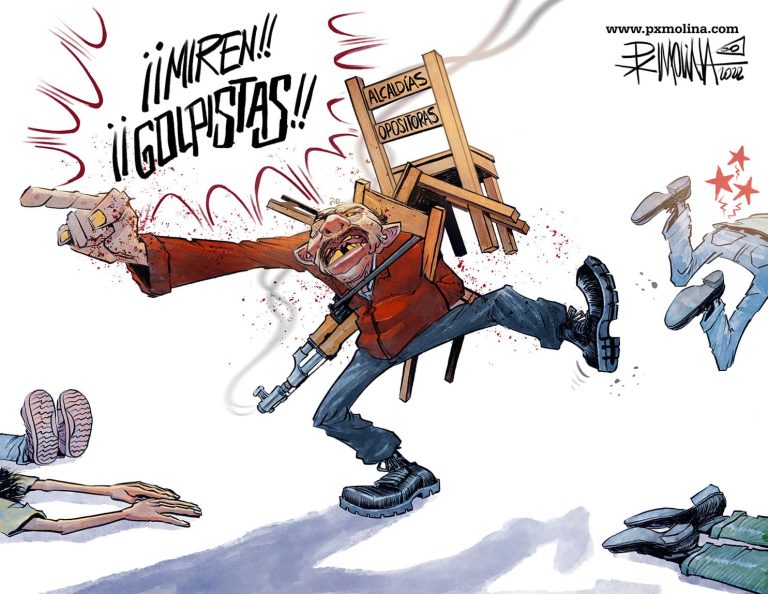18 de octubre 2022

Children of Exile: The Births “Sowing Hope” in the Camp of Nicaraguan Farmers

PUBLICIDAD 1M
PUBLICIDAD 4D
PUBLICIDAD 5D
This flight demonstrates Ortega’s fear of the future, the desperate search for allies to keep him afloat

“Let’s wipe the slate clean, start afresh, and move forward.” These words, pronounced by Daniel Ortega in his self-investiture after the November 2021 electoral fraud, predicted a trend to the further radicalization of the Nicaraguan dictatorship that had been accelerating since the April 2018 protests.
Almost a year later, the social consequences of that flight are dramatic. There are now in Nicaragua at least 195 people recognized as political prisoners. Some of them, potential candidates for those November elections, were imprisoned and have been subjected to torture and solitary confinement for more than a year and a half.
Their health is deteriorating within the walls of El Chipote, a Nicaraguan prison complex and true center of torture. These are some of the reasons why political prisoners Miguel Mendoza, Roger Reyes, Irving Larios and Dora Maria Tellez have been on a hunger strike for more than 22 days. Meanwhile, the repression continues and is extended to the families of the dissidents in a new pattern that goes from harassment and threats to the imprisonment of family members in retaliation.
Thus far in 2022, the Ortega regime has cancelled the legal status of 2,242 Nicaraguan civil society organizations, as well as 147 foreign NGOs. More than 54 independent media outlets have been shut down since 2018.
The wounds of the April 2018 protests, however, remain open. At least 335 people were killed in that context, and their families continue to seek truth and justice. Thousands of young people in vulnerable situation were injured and are now facing serious health problems in the gap of a public health system that rejects them and the high prices of private health care to which they have difficulties having access to.
The Ortegas and their dictatorial apparatus expelled thousands of young people from universities, robbing them of their future. Tens of thousands of Nicaraguans are thrown into an uncertain exile, often not knowing if they will be allowed to return to a homeland from which the regime intends to exclude them. This new pattern, facilitated by the connivence of airlines, leaves Nicaraguans who decide to return stranded at any stopover. Foreigners in a random country, deprived of their homeland.
Meanwhile, the flight forward also focusses on the international sphere. The Ortega dictatorship knows it has feet of clay and is also radicalizing its isolation in the face of an increasing evident lack of support at the regional and international level.
At the end of September, the dictatorship declared the head of the EU delegation in Nicaragua, Bettina Muscheidt, persona non grata. This unjustified and unilateral decision implied a bang on the table, a temper tantrum by Ortega in response to European calls for him to return at long last Nicaragua’s sovereignty to the Nicaraguan people.
The EU responded proportionally this past week by expelling Zoila Muller, representative of the Nicaraguan regime to the European institutions. That same Thursday, the EU renewed the sanctions imposed against Nicaraguan officials, including several of Ortega and Rosario Murillo’s children.
The OAS also approved on October 7 a new resolution to condemn the repressive drift of the regime and offer to create a high-level commission with the objective of discussing “all pertinent matters” with Managua.
Efforts must continue to be made at all levels to be creative in seeking avenues of support to the people who suffer today inside and outside Nicaragua. But the international community can never fall into Ortega’s trap. Dialogue with Managua cannot come at any price.
Meanwhile, the dictator continues strengthening ties with Russia. In the resolution approved by the United Nations General Assembly on October 12 to condemn the occupation of Ukrainian territory, only five countries voted against: Belarus, North Korea, Syria, Russia itself and…Nicaragua. Another clear self-portrait of the dictatorship. For good reason, after the April 2018 protests, Russia went out of its way to point out that Ortega’s repression was “a purely internal affair.” Only a month later, both States signed the Memorandum of Intent on Matters of Consultative Cooperation, opening a closer channel of communication that also includes military support.
This flight demonstrates Ortega’s fear of the future, the desperate search for allies to keep him afloat. The Ortegas know something that we also know: Nicaraguan civil society resists, monitors, denounces, informs, investigates. Despite the repression, it continues to find ways to organize. Our role is to be at their side.
It was civil society—in particular, Collective 46/2*–, which, with its tenacity, managed to establish an independent accountability mechanism for the crimes of the dictatorship by the UN Human Rights Council. The recent announcement of the opening of an investigation by Argentina’s Public Prosecutors Office into Ortega, Murillo and those responsible for ordering or executing the political and religious persecution, thereby enabling a path of universal jurisdiction, is another triumph of the civil society that resists. Justice takes a long time, but it will come. Sooner or later, as Gioconda Belli writes, “the earth will soften under the feet of the tyrants.”
Article originally published in El Independiente.
*Collective 46/2 is a coalition of 21 international, regional and Nicaraguan human rights organizations that have monitored the Nicaraguan government’s implementation of the 14 recommendations addressed to it in resolution 46/2, which was adopted by the UN Human Rights Council in March 2021.
This article was originally published in Spanish in Confidencial and translated by Havana Times
Archivado como:
PUBLICIDAD 3M
PUBLICIDAD 3D